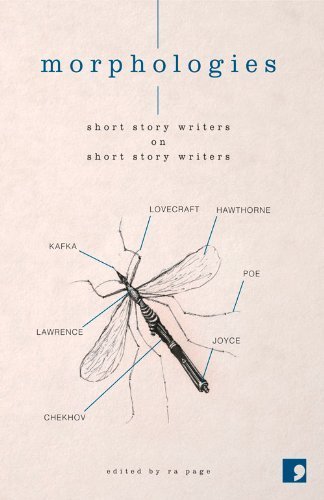The short story: A hidden country still?
By MICHAEL CAINES
"Is the short story an endangered species?" is, as Joyce Carol Oates acknowledged in the New York Review of Books fourteen years ago, a "perennial question" – yet she came to the conclusion that, in the twenty-first century, it really would be. There were, are and will be great exponents of the form, but they would work under less "hospitable" circumstances, in a "radically diminished landscape", making the work of "generally reliable" and "heroically edited" annual anthologies "invaluable". I suppose we should count ourselves lucky that the publications Oates had in mind, including this and that, are still with us.
Over here in the UK, meanwhile, there's this, that and the other – the other, with which I have some peripheral involvement, being a slightly different way of making the short story thrive. I'd like to think that the £15,000 awarded to the winner of the BBC National Short Story Award and the £30,000 awarded to the winner of the Sunday Times EFG Short Story Award will help to keep at least some short story specialists going for a little while longer.
For those still writing their entries to the BBC National Short Story Award (deadline: February 28), and for those of us who are merely readers of short stories (most recently, in my case, Charles Boyle's superb collection The Manet Girl), there is much to inspire and enjoy in Morphologies, just published by Comma Press. The subtitle is Short story writers on short story writers – more of a tongue-twister than "Poet to Poet", as Faber call their series of anthologies, but based on the same idea. Here, under the editorship of Ra Page, we have Sara Maitland writing about Nathaniel Hawthorne, Frank Cottrell Boyce writing about Anton Chekhov, Adam Roberts taking on the difficult task of writing fairly about Kipling ("simply the most technically gifted" of English short story writers), Ali Smith dismantling the opening paragraphs of the first three stories in Dubliners . . . and so on. (It's a pity Joyce wasn't available to return the compliment and write about the nifty opening paragraphs of Ali Smith.)
The main question is what makes a short story work. Smith describes those great Joyce stories as an "education in the ways not just narrative form but language itself works" – a notion you can catch a couple of minutes into this video, Alison McLeod's talk on (another Chekhovian) Katherine Mansfield, based on her contribution to Morphologies. Here she quotes Mansfield herself, speaking around the extraordinary moment of "At the Bay" et al:
"I do believe that the time has come for a new word, but I imagine the new word will not be spoken easily. People have never yet explored the lovely medium of prose. It is a hidden country still. I feel that so profoundly."
Each contribution to Morphologies ends with a list of essential stories, some of which are available in turn as eBooks. With some writers, the choice is so rich that it would be possible to choose almost entirely different lists; others are more predictable but useful reminders of what to turn back to (in search of pure pleasure or award-chasing inspiration or both). Here's an example of the first kind, I suspect, courtesy of Comma Press, Martin Edwards's selection of Arthur Conan Doyle:
J. Habakuk Jephson's Statement
The Red-Headed League
The Man with the Twisted Lip
The Adventure of the Speckled Band
The Adventure of the Copper Beeches
Silver Blaze
Lot No. 249
The Case of Lady Sannox
The Man with the Watches
The Leather Funnel
And the second kind? Well, maybe Toby Litt's recommendations from Kafka, who "created subject areas where other writers saw only frustration":
The Wish To Be a Red Indian
Description of a Struggle
Metamorphosis
Before the Law
In the Penal Colony
The Bucket Rider
The Problem of Our Laws
A Hunger Artist
Investigations of a Dog
The Burrow
It might have been of interest to these pre-Mansfield masters to learn that there was a hidden country of prose out there; great short story writers, then and now, create countries of their own.
Peter Stothard's Blog
- Peter Stothard's profile
- 30 followers




